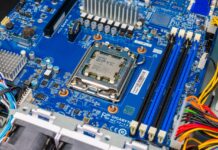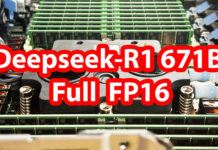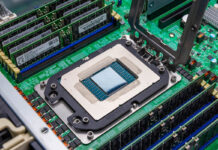Over the past few months I have looked at a number of different CPUs including the Intel Atom Pineview D510 platform, the AMD Brazos E-350 platform, and a number of Xeon E3 series CPUs like the Xeon E3-1230. At the same time I have been playing with those CPUs and a lot of previous generation hardware with Microsoft Small Business Server 2011 Essentials and have some thoughts on hardware that I thought I would share.
Many businesses will look at the Intel Atom D510 and D525 platform and realize that with 64-bit extensions and two cores with Hyper Threading it is enough CPU to handle basic file server tasks, and run Microsoft Small Business Server 2011 Essentials. Likewise, the dual core AMD E-350 Zacate platform may seem like another low power option that will work with Microsoft SBS 2011 Essentials. My advice is to steer clear of both of these CPUs for SBS 2011 Essentials. Loading up 10+ clients, SBS 2011 can bog down quite easily when roles expand beyond basic file tasks. Since Microsoft has done a great job integrating its Office 365 platform with SBS 2011 Essentials, many installations will not need to run things like a local Exchange server. On the other hand, one of the most attractive selling points of SBS 2011 Essentials is that it is, at its core, Windows so one can easily install an enormous amount of hardware and software directly on the machine.
The main problem with the ultra-low power CPUs is that once users start accessing files and applications start running on the server, the machine starts to slow down. Another factor is that there are very few platforms that have things like IPMI 2.0 and KVM-over-IP for the lower power parts. The Atom has solutions from both ASUS and Supermicro that would work in a server role and have these remote management features. On the other hand, the Atom platform is limited to 4GB of RAM currently, which is not ideal for SBS 2011 Essentials. The AMD Zacate platform can handle 16GB of DDR3, but does not have the same level of server grade motherboard support. Generally I am recommending 8GB or more of RAM for SBS 2011 Essentials to be on the safe side.
Furthermore, the boot times, once the server has a few things installed like Apache, MySQL and etc. on it that are start-up services, both the Zacate platform and Atom platforms take a long time to boot. I created a used-disk image with a decent number of start-up services and saw that the boot times from cold boot to service availability was consistently minutes longer on the lower power platforms versus the Xeon E3 series CPUs. Upon initial installation the difference was not that great but like any Windows box, more start-up services mean slower boot times. Utilizing SSDs with a bit of over provisioning and garbage collection in RAID 1 seems to work well to give users a good experience when starting applications installed on the drives.
Looking at the other end of the spectrum, 45nm Xeons seem to work fine as SBS 2011 Essentials servers. I used a Xeon X3440 platform and a W3550 platform with SBS 2011 Essentials and they seem to work well. Users with these platforms already available will not need to upgrade unless a specific application requires more power. From what I have seen, the AMD Opteron 6100 Magny-cours series and Intel Xeon E5500 series CPUs (and above) are more than most users will need. I think the sweet spot is actually in the lower-end of the Xeon E3 series which generally comprises the E3-1220, E3-1230, and E3-1240 CPUs. Although these CPUs are more expensive than the Atom and Brazos platforms, in a business context where lost time has a wage cost associated, the <$200 difference is likely to be inconsequential. Another advantage is that the Xeon E3 series supports ECC memory making it a strong choice. Another thing the Xeon E3 series has is AES-NI which allows a user to encrypt directories, an important thing in an age where sensitive information can be stored on a company’s servers.
Conclusion
The Atom and Brazos platforms offer too little performance for anything more than a very basic file server role, while the dual and quad socket Xeons and Opterons are too much for Microsoft Small Business Server 2011 Essentials. Until Bulldozer launches in the near future, Intel’s Xeon E3 series is probably a best buy for Microsoft SBS 2011 Essentials. One major caveat is that most users will be better off with the lower-end parts. I personally think the E3-1230 and E3-1240 provide the best value in the current Intel lineup for SBS 2011 Essentials as they do not carry a high price premium, but have great single threaded performance and support for ECC and AES-NI. With that being said, older-generation hardware seems to to just fine with SBS 2011 Essentials so there is not a compelling reason to upgrade outside of AES encryption scenarios. Like other 64-bit Windows Server platforms, SBS 2011 Essentials should probably have 8GB of ECC RAM minimum and ideally 16GB+.



